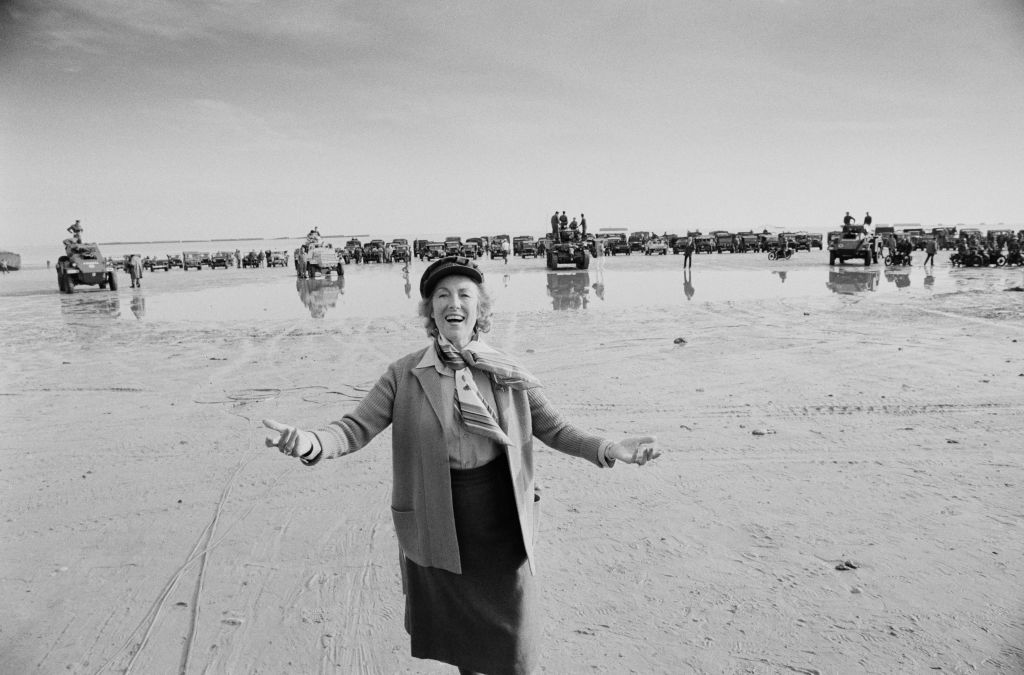Dame Vera Lynn, who comforted Britain with 'We'll Meet Again' since World War II, has died at 103


A free daily email with the biggest news stories of the day – and the best features from TheWeek.com
You are now subscribed
Your newsletter sign-up was successful
Dame Vera Lynn, the singer whose songs helped boost British morale in World War II, died early Thursday. She was 103. Lynn, most famous for the song "We'll Meet Again," earned the nickname "the Forces' Sweetheart" after being voted the favorite artist of British troops in a 1939 Daily Express poll. She serenade British forces during the war and hosted a wildly popular BBC radio show, "Sincerely Yours," where she would sing requests and send messages to British forces overseas. "Winston Churchill was my opening act," she once quipped.
Lynn's other hits included "The White Cliffs of Dover," "I'll Be Seeing You," and "There'll Always Be An England," and her career did not end with Nazi Germany's defeat. Her song "Auf Wiedersehen Sweetheart" was the first British hit to top the U.S. Billboard charts in 1952, and she hit No. 1 in 1954 with "My Son, My Son," The Associated Press reports.
But "We'll Meet Again" is the song that fans wanted to hear and sing along to up until her death. She was featured in a virtual duet of the song with mezzo-soprano Katherine Jenkins during the COVID-19 pandemic, and Queen Elizabeth II invoked the lyrics in her rare address to Britain during the darkest early days of the coronavirus lockdown. In May, Lynn's greatest hits collection 100 hit No. 30 on the U.K. charts, making her the oldest artist ever to crack the Top 40, beating her own record.
The Week
Escape your echo chamber. Get the facts behind the news, plus analysis from multiple perspectives.

Sign up for The Week's Free Newsletters
From our morning news briefing to a weekly Good News Newsletter, get the best of The Week delivered directly to your inbox.
From our morning news briefing to a weekly Good News Newsletter, get the best of The Week delivered directly to your inbox.

Lynn was born Vera Margaret Welch on March 20, 1917, in London's working class East Ham neighborhood. She started performing at age 7, dropped out of school at 11 to tour with a variety show, was singing with a band at age 17, and was already somewhat famous when World War II broke out. Lynn, made a Dame of the British Empire in 1975, spent her golden years in Ditchling, a village about 40 miles south of London. Fans, including various stars and British Prime Minister Boris Johnson, paid tribute to her Thursday.
A free daily email with the biggest news stories of the day – and the best features from TheWeek.com
Peter has worked as a news and culture writer and editor at The Week since the site's launch in 2008. He covers politics, world affairs, religion and cultural currents. His journalism career began as a copy editor at a financial newswire and has included editorial positions at The New York Times Magazine, Facts on File, and Oregon State University.
-
 What to know before filing your own taxes for the first time
What to know before filing your own taxes for the first timethe explainer Tackle this financial milestone with confidence
-
 The biggest box office flops of the 21st century
The biggest box office flops of the 21st centuryin depth Unnecessary remakes and turgid, expensive CGI-fests highlight this list of these most notorious box-office losers
-
 What are the best investments for beginners?
What are the best investments for beginners?The Explainer Stocks and ETFs and bonds, oh my
-
 ‘One Battle After Another’ wins Critics Choice honors
‘One Battle After Another’ wins Critics Choice honorsSpeed Read Paul Thomas Anderson’s latest film, which stars Leonardo DiCaprio, won best picture at the 31st Critics Choice Awards
-
 Son arrested over killing of Rob and Michele Reiner
Son arrested over killing of Rob and Michele ReinerSpeed Read Nick, the 32-year-old son of Hollywood director Rob Reiner, has been booked for the murder of his parents
-
 Rob Reiner, wife dead in ‘apparent homicide’
Rob Reiner, wife dead in ‘apparent homicide’speed read The Reiners, found in their Los Angeles home, ‘had injuries consistent with being stabbed’
-
 Hungary’s Krasznahorkai wins Nobel for literature
Hungary’s Krasznahorkai wins Nobel for literatureSpeed Read László Krasznahorkai is the author of acclaimed novels like ‘The Melancholy of Resistance’ and ‘Satantango’
-
 Primatologist Jane Goodall dies at 91
Primatologist Jane Goodall dies at 91Speed Read She rose to fame following her groundbreaking field research with chimpanzees
-
 Florida erases rainbow crosswalk at Pulse nightclub
Florida erases rainbow crosswalk at Pulse nightclubSpeed Read The colorful crosswalk was outside the former LGBTQ nightclub where 49 people were killed in a 2016 shooting
-
 Trump says Smithsonian too focused on slavery's ills
Trump says Smithsonian too focused on slavery's illsSpeed Read The president would prefer the museum to highlight 'success,' 'brightness' and 'the future'
-
 Trump to host Kennedy Honors for Kiss, Stallone
Trump to host Kennedy Honors for Kiss, StalloneSpeed Read Actor Sylvester Stallone and the glam-rock band Kiss were among those named as this year's inductees
